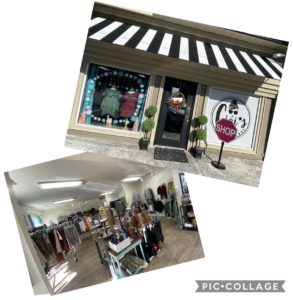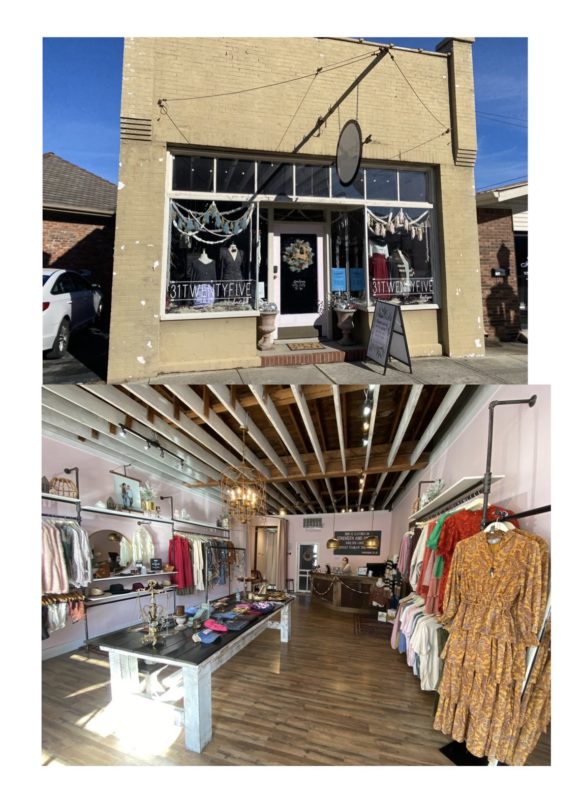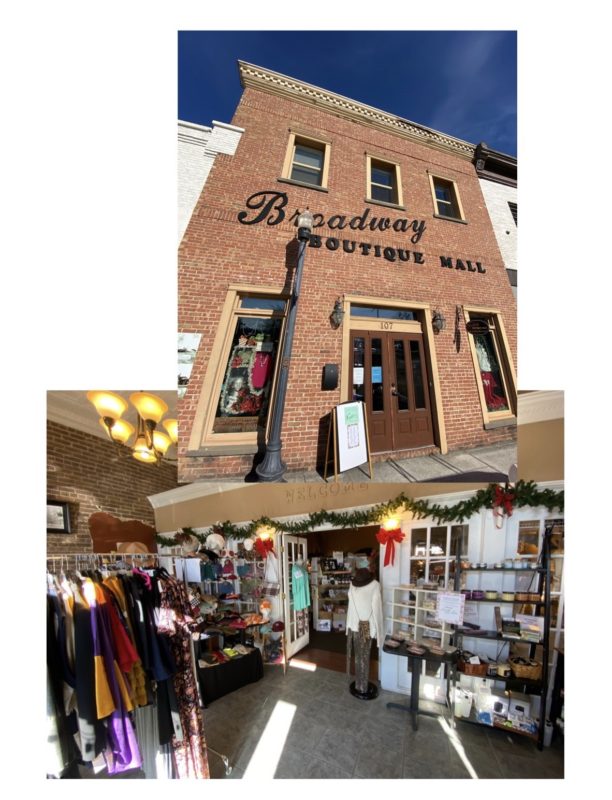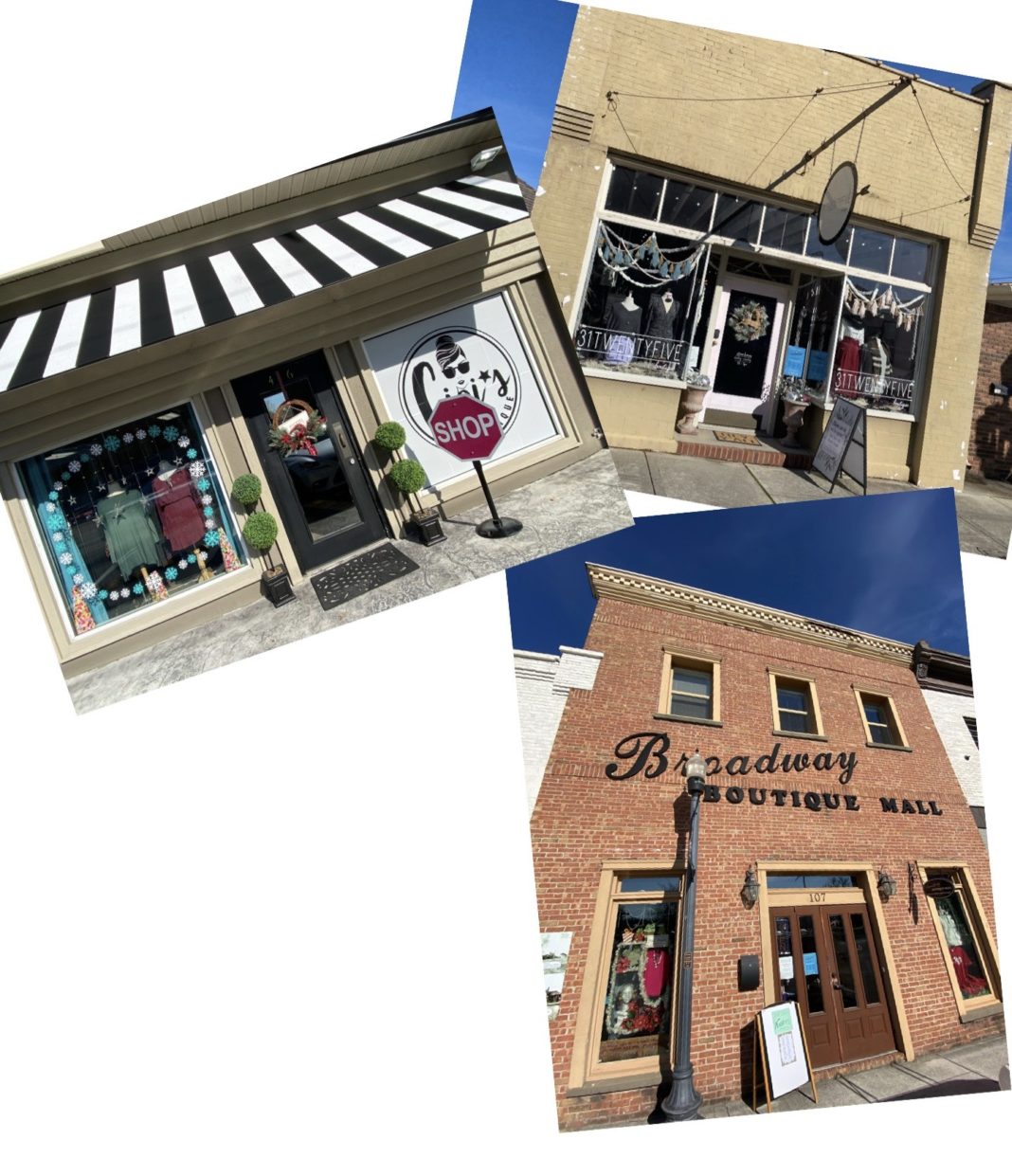By Michelle Price
Special to the UCBJ
COOKEVILLE – In a time rife with challenges due to COVID-19, nothing is business as usual. 2020 has been a trying year for most, with many businesses unable to survive. Cookeville’s downtown retailers have found the keys to surviving COVID are being willing to change business models, staying healthy and even a little prayer.
Closings + cancellations = less demand
Many local retailers felt that 2020 was one struggle after another just to survive.
“Numbers are down,” said Cigi’s owner, Cigi England. “I feel like, first, it was a tornado, and right on the heels was COVID. We had to close three weeks in April. That was devastating, and then overall numbers are still trending down.”

The cancellation of many local events has had a significant impact on Cookeville’s small retailers.
“October and November were down, and a lot of it had to do with so many things being canceled,” said Susan Schultz, owner of Broadway Boutique Mall. “There’s so much that draws to this part of town, Mistletoe Market, Santa’s Workshop, Wine on the Westside, all these things that draw to this side of town didn’t happen. I couldn’t have my Christmas Open House, and that put a big dent in things.”
England agreed that cancellations were impacting business, “I think people are buying less. There are no events, so there’s no need to buy a party dress. A lot of the events got canceled this spring, like graduations and weddings, and even if they rescheduled them, you could only bring one guest. I think people are definitely shopping less, buying less.”
“It’s like a domino effect. When one thing stops, it sort of trickles down into all other areas, me included,” said Schultz.
Turning negatives into positives
One local business, 31TwentyFive Boutique, responded to the COVID pandemic by changing its business model to focus more on online sales.

“Business is really good,” said store associate Taylor Burton. “We’re only open two days a week right now just because we are being super careful with COVID. Our online has been doing beyond what we could have expected. We are very lucky in that aspect because we are only open two days a week. I’m the only one working in the store, and my boss comes in and packs orders throughout the week.”
Although in-person sales are down about 25%, Burton says the store is doing at least as well as last year because of the impact of the online sales from their website, www.31twentyfiveboutique.com.
“Small Business Saturday, we did a sale, and the in-person sales were amazing, but all day we were running back and forth packing up orders from everyone ordering online and supporting our business, which was amazing to see,” said Burton.
Store hours also got cut
COVID and the subsequent change in shoppers’ habits have also impacted store hours. 31TwentyFive Boutique’s shift to a two-day week was perhaps the most drastic but was not the only change that has been seen amongst locally owned stores.
“I normally was open from 10:30 or 11 a.m. until 6 p.m., and I haven’t been open until 6 p.m. since before we shut down in March. Nobody is down here,” said Schultz. “The few people that come down to this area after four o’clock are in the restaurants, so I’ve been closing at four. Because from 4-6 p.m., I’ve got to stand here, and I’m not going to pay somebody to be here and have nobody come in.”
Fewer gifts due to social distancing
The discouraging of social gatherings is also impacting local retailers.

“A lot of the get-togethers that people buy for, cookie exchanges and school parties where you give gifts to other people – and that’s what I survive on is gifts – I think I’ve sold two ornaments all year, which is really weird,” said Schultz. “But when people get together, like their bunko groups – people just aren’t doing that.”
Since people aren’t traveling to visit family, one trend that retailers see is the purchase of gift cards instead of actual gifts.
“Several customers have come in and told me that they can’t go see family this year; they can’t get together with family – or they’re not intending to, so they’re doing a lot of gift cards,” shared Schultz. “Well, I’m not an Amazon or Walmart; I’m just a one-store local. If they are sending their present to another state or city, they aren’t going to send a gift card to here, so they are buying generic gift cards to send to people. I’ve heard a lot of people say they aren’t doing much in presents this year; it’s just all going to be in gift cards and money.”
Safety is priority No. 1
Masks do not seem to be an issue for downtown retailers, with, on average, over 80% of the customers wearing a mask upon entering the store. The 31TwentyFive Boutique reported that on Small Business Saturday, almost all of its customers were wearing masks.
“We were really lucky,” said Burton. “I think people just realized that we were being more careful, and we do have a sign out front. People see that, and they see everyone in here with our masks on. We’re very lucky I really haven’t had any confrontations so far.”
The wearing of masks is just as crucial for the health of the retailers as it is for the customers.
“If I close for two weeks, that may be the end of my business,” said England. “Especially during the busiest time of the year. So, we have to do everything we can to stay well and healthy, because if I get sick – God forbid – my staff can’t come because I only have two people, and they’re with me all the time. What if I get really sick and I’m out longer than the two weeks? So that’s a chance we can’t take right now. We can’t afford to get sick.”
Masks aren’t the only safety factor that stores are employing.
“I wipe everything down,” said Schultz. “I wipe off every credit card that I handle. I wipe off my credit card machine. I wipe off the counters they have touched, and we spray Lysol around here religiously on anything that won’t be damaged by it.”
Supporting local businesses
“It’s really important to shop local because we give back” said England. “Anytime a school comes by, a nonprofit or a sports team, we always give back to our community. When you spend money here in your local economy, on average, $73 of every $100 stays in your local economy.”
“We’re here and thank you, thank you, thank you for supporting us and for keeping us where we are because this is the heart of the city,” Schultz added. “Every town in the world has your Walmarts – not to knock them, they have their place – but not every city in the world has what we have downtown. They don’t have all the stores where the owner is in the store, where if you have a problem, you can talk to the owner, and that’s meaningful. I think we’re all in this together, and as long as we keep praying and keep the faith, we’ll come through on the other side.”









